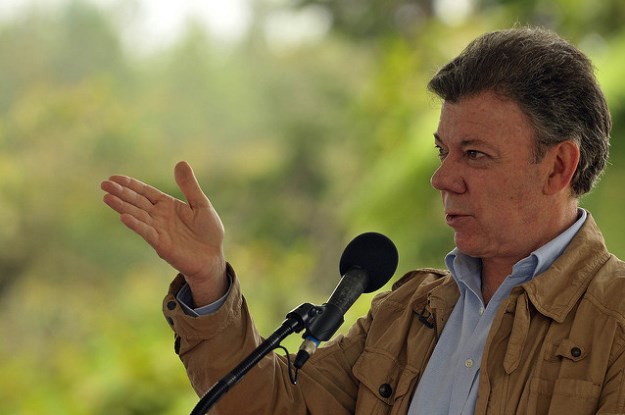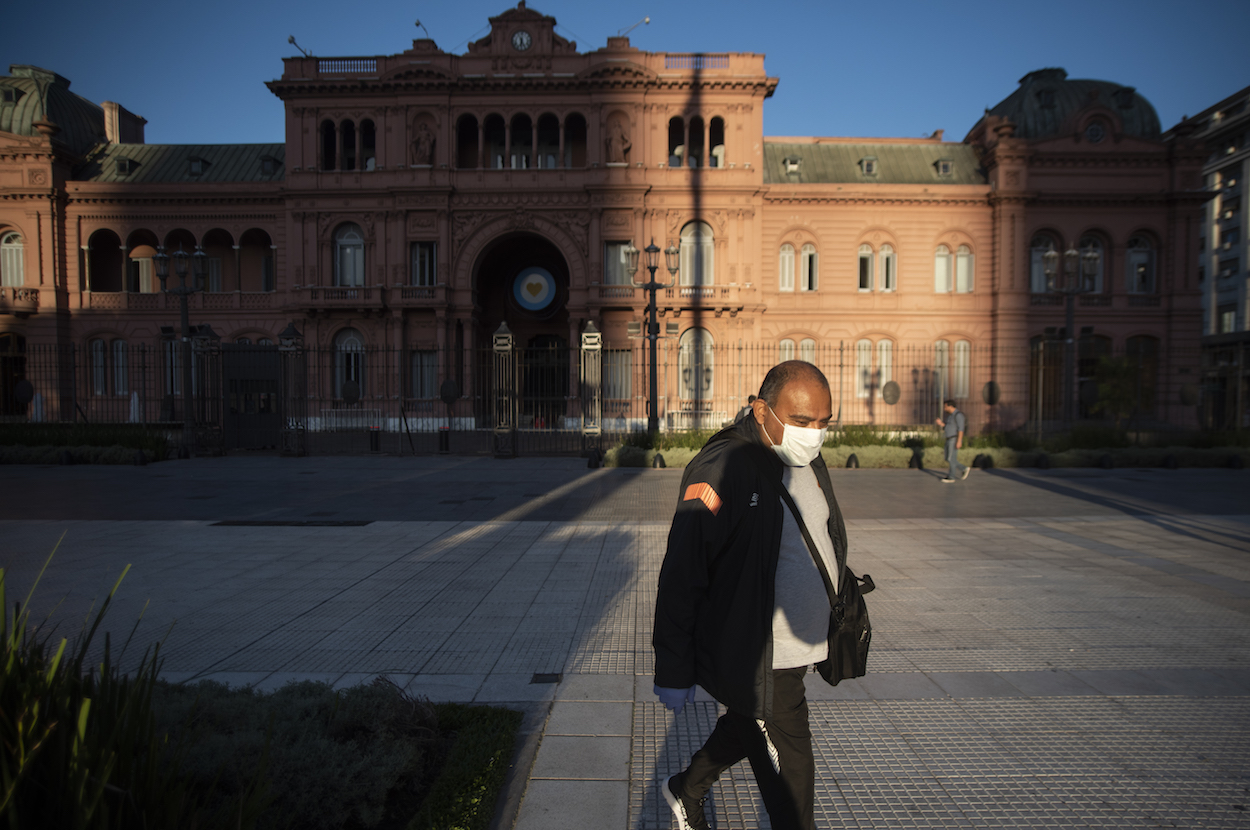Sign up here to get This Week in Latin America delivered to your inbox every Monday.
Laying Down Arms: A “definitive,” bilateral cease-fire in Colombia’s 52-year war with the FARC began this morning after the two sides agreed to a final peace deal on August 24. The deal will be put to a plebiscite vote on October 2, with campaigning both for and against already picking up steam. The “Yes” camp got a boost on Friday when Germán Vargas Lleras, the current vice president and a likely candidate for president in 2018, said he would support those campaigning in favor of the deal; Vargas has been skeptical of President Juan Manuel Santos’ 4-year negotiations with the rebels. Some recent polls show majority support for the accord, though perceptions of leniency and the complexity of implementing the deal may provide the “No” side with points of argument. FARC militants, for their part, will vote in September on whether to approve the deal.
Dilma Verdict: Suspended President Dilma Rousseff is likely to be permanently removed from office after Brazil’s Senate concludes impeachment proceedings against her this week. If 54 members of the 81-member body vote for impeachment, interim President Michel Temer will remain in office until regularly scheduled elections take place in 2018. Temer has said he won’t run for president when his term is up. Rousseff’s political mentor, former President Luiz Inácio Lula da Silva, has been expected to run, but now faces an uncertain future after federal police on Friday recommended that he and his wife be charged with corruption and money laundering. Rousseff and Lula both have denied allegations of wrongdoing and said the charges against them are politically motivated.
The State of Mexico: President Enrique Peña Nieto on September 1 will deliver his fourth annual report to Congress amid some of the lowest approval ratings of his administration. Peña has faced a series of scandals in recent weeks, including allegations that he plagiarized significant portions of his graduate thesis. Security and the economy are of more pressing concern: July was the deadliest month in Mexico since 2011, and just last week, Standard & Poor’s joined Moody’s in lowering its credit outlook on Mexico to negative, citing rising government debt. Teachers’ strikes have disrupted plans to overhaul the country’s education system, while low oil prices have made gains from a much-praised energy reform slow to materialize. In an effort to stem the tide, Peña says that, after delivering his report to Congress, he will have a meeting with youth and “other members of society” instead of offering a traditional speech.
Protest in Venezuela: A major opposition protest planned for September 1could determine the political future of Venezuela’s President Nicolás Maduro. Opposition leaders say they will take to the streets of the capital Caracas to insist that a vote to remove Maduro take place before January 10, after which a recall would leave the vice president in charge for the remainder of his term. Venezuela’s electoral authority suggested early this month that, if a referendum on Maduro’s rule were to take place at all, it would happen between January and March of next year. Maduro last week had 4,000 state employees who signed a petition in favor of the recall referendum removed from their posts. Just this weekend, an influential former opposition mayor who had been held under house arrest for more than a year was sent to prison, amid claims that he was “planning to instigate violence” during the protest.
Economy in Brief
Cuba will hold a summit to encourage renewable energy investment on September 1-2.
Peru increased its GDP growth projections for 2016 and 2017, citing investment and mining gains.
Chile’s state copper firm Codelco is looking for a partner on a $1.2 billion desalination plant in the country’s northern desert.
“Yo jamás sufrí, yo jamás llore. Yo era muy feliz, yo vivía, yo vivía muy bien.”








